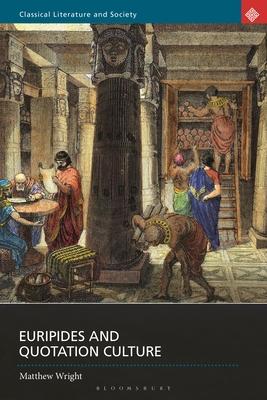
Within classical antiquity, Euripides was the most widely quoted author apart from Homer. His plays are full of 'quotable quotes', which were repeated so often that they acquired a life of their own. Hundreds of famous verses from Euripidean drama circulated widely within the ancient world, even after the plays in which they originally featured became forgotten or vanished completely. Indeed, the majority of Euripides' tragedies now survive only in the form of scattered quotations, otherwise known to us as 'fragments'. It is this corpus of fragmentary quotations, along with his extant plays, that makes Euripides such an interesting case study in the world of quotation culture. This book is the first of its kind to understand Euripides' work through this lens, as well as opening up quotation culture as a major theme of interest within classical scholarship.
Within classical antiquity, Euripides was the most widely quoted author apart from Homer. His plays are full of 'quotable quotes', which were repeated so often that they acquired a life of their own. Hundreds of famous verses from Euripidean drama circulated widely within the ancient world, even after the plays in which they originally featured became forgotten or vanished completely. Indeed, the majority of Euripides' tragedies now survive only in the form of scattered quotations, otherwise known to us as 'fragments'. It is this corpus of fragmentary quotations, along with his extant plays, that makes Euripides such an interesting case study in the world of quotation culture. This book is the first of its kind to understand Euripides' work through this lens, as well as opening up quotation culture as a major theme of interest within classical scholarship.
Hardcover
$127.78